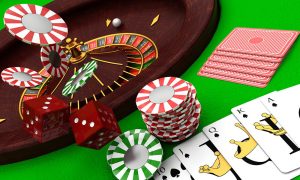Ever wondered why we keep coming back to those bright, spinning reels of slot machines? There’s more to it than flashy graphics and catchy sound effects. Understanding the psychology behind playing pos4d slot can provide fascinating insights into human behavior and motivation. In this blog post, we’ll explore what makes these games so compelling, how they affect our brains, and what it means for both casual players and those who gamble regularly.
The Allure of Slot Machines
At first glance, slot machines seem simple enough. You press a button or pull a lever, watch the reels spin, and hope for a winning combination. But why are these games so addictive? It’s all about the instant gratification and the thrill of potential rewards. Unlike other forms of gambling that require strategy or skill, slots offer a quick and easy way to win money—or at least, the illusion of it.
Variable Rewards and Reinforcement
One of the most powerful psychological principles at work in slot machines is the concept of variable rewards. This means that the outcome is unpredictable; you never know when you’ll hit the jackpot. This kind of intermittent reinforcement is incredibly effective at keeping people engaged. It’s the same principle that makes social media and mobile games so addictive.
The Role of Dopamine
When you play Pos4d slots, your brain releases dopamine, the “feel-good” neurotransmitter. This chemical not only makes you feel pleasure but also reinforces behaviors that lead to rewards. Each time you spin the reels, your brain gets a little hit of dopamine, making you want to play again and again. This cycle can easily lead to addictive behavior.
Near Misses
Another psychological trick used in slot machines is the concept of “near misses.” These are outcomes that are close to a win but not quite. For example, two matching symbols and one that just misses the mark. Research shows that near misses trigger the same brain regions as actual wins, making players feel like they were “almost there” and encouraging them to keep playing.
Emotional Triggers and Design
Slot machines are meticulously designed to trigger emotional responses. The colors, sounds, and even the layout of the machines are all carefully crafted to create a stimulating environment. Bright lights and festive sounds make the experience more enjoyable, while the design of the machine itself is meant to keep you playing longer.
The Illusion of Control
Many slot machines incorporate features that give players the illusion of control. For example, some machines allow you to stop the reels yourself, making you feel like your actions directly influence the outcome. In reality, the results are determined by a random number generator, but this illusion keeps players engaged.
Social Proof and Community
Playing slots often takes place in a social setting, whether it’s a bustling casino or an online gaming community. Seeing others win can trigger a sense of social proof, making you believe that you can win too. Online platforms often have leaderboards or chat features where players can share their wins, adding a communal aspect to the game.
Escapism and Stress Relief
For many people, playing slots serves as a form of escapism. The immersive experience allows players to forget about their daily stresses and lose themselves in the game. This can be particularly appealing during tough times, making slots a quick and easy way to relax and unwind.
The Dark Side of Slot Psychology
While understanding the psychology behind slot machines can help us appreciate why they are so popular, it’s also important to recognize the potential downsides. The same principles that make slots engaging can also lead to problematic gambling behavior.
The Risk of Addiction
The combination of variable rewards, dopamine release, and near misses creates a perfect storm for addiction. Some people may find it hard to stop playing, leading to significant financial and emotional consequences. It’s crucial to be aware of these risks and approach gambling with caution.
Financial and Emotional Impact
Problematic gambling can lead to severe financial strain, affecting not just the gambler but also their loved ones. The emotional toll can be equally devastating, leading to issues like anxiety, depression, and strained relationships. It’s essential to seek help if you or someone you know is struggling with gambling addiction.
Responsible Gambling
Many casinos and online platforms offer resources for responsible gambling, including self-exclusion options and support groups. If you enjoy playing slots, it’s important to set limits and stick to them. Understanding the psychological mechanisms at play can help you make more informed decisions and enjoy the game responsibly.
Conclusion
The psychology behind playing Pos4d slots is a fascinating blend of reward systems, emotional triggers, and cleverly designed mechanics. While these elements make slots incredibly engaging, they also carry the risk of addiction and financial loss. By understanding how these games work, we can better appreciate their appeal and approach them with a healthy sense of awareness.
For those interested in exploring more about gambling psychology or seeking help, numerous resources are available. Remember, the key is to enjoy the game responsibly and seek help if needed. Happy spinning!


